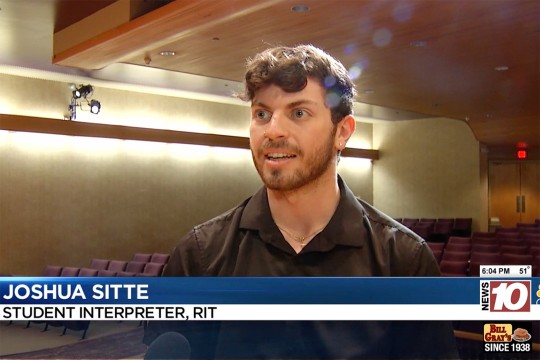RIT Students Band Birds at Braddock Bay in New Class
Limited to six students, the bander training class is the lab component of the Biology of Birds seminar, taught by bird biologist Mark Deutschlander, assistant professor of biology. Deutschlander joins his students every Thursday and Friday at the observatory to study under the guidance of master bander Elizabeth Brooks.
As beginning banders, the students stick with songbirds—such as warblers, sparrows and kinglets. "Occasionally a small hawk will get caught in a net," Deutschlander says. "Then the students call for someone more experienced."
Each week the students gain experience handling birds, learning to capture and remove the birds from the net with minimal trauma, to identify species and sex, to take a variety of measurements and to clamp a band around each bird’s leg. These bands, each with their own unique identification number, are issued by the U.S. Fish and Wildlife Service, which keeps track of all the bird banding activities in the United States.
In the fall, birds stop at Braddock Bay to refuel after flying over the Great Lakes, Deutschlander explains. On Friday, Sept. 28, students helped band 406 birds at the observatory. Banding data that the students are learning to collect aids research about migration, stopover ecology, breeding and a variety of complementary studies to help protect the birds and their environment.
Deutschlander hopes his students will continue to use what they have learned at Braddock Bay once the class is done, turning a passion for birds into a commitment.
"The conservation of migratory birds is a global effort," Deutschlander says. "Birds depend on a healthy environment from breeding ground to wintering ground and all the places they stop in between."
To learn more about the Braddock Bay Bird Observatory, log onto www.bbbo.org.














